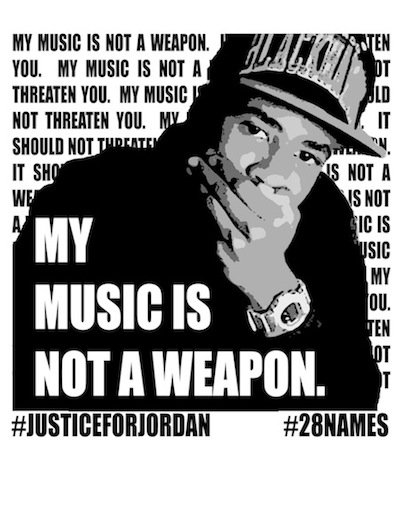Among the more interesting conversations during the two-week build-up to the Super Bowl was prompted by Richard Sherman's comment that the word "thug" is the newly accepted way of calling someone the "N-word." The just-concluded trial in which Michael Dunn faced a first-degree murder charge and three counts of attempted murder is a good illustration of Sherman's point. Dunn is the 47-year-old white man who fired 10 shots into a vehicle after a dispute over the volume level of what Dunn had described as "thug music." The jury was hung on the charge of murder in the first degree in the death of 17-year-old Jordan Davis, but convicted Dunn of the attempted murder charges against the three other young men who were in the car with Davis.
Dunn's lawyer, Cory Strolla, insisted that the trial was not about race, but instead about a "subculture thug issue." But what work is "thug" doing here, other than to dehumanize a group of young men for the purposes of devaluing their lives in order to justify ending them? Maybe Jordan Davis and his friends were being obnoxious that night. Maybe they were being really obnoxious. I don't know because I wasn't there. But "thug," in this context, is meant to signal that, almost no matter what those kids did, they deserved to be treated with a lesser presumption of basic humanity and were, therefore, reasonably subject to the ultimate punishment. If you're already in a lesser category of human being, then one false move, like playing loud music, means it's open season. This is, I think, in part what Ta-Nehisi Coates meant when he wrote, in the aftermath of the Davis-Dunn verdict, of the "irrelevance of black life" in America. And it's what Richard Sherman knew to be true when he made his comments at the Super Bowl about the use of the word "thug." Michael Dunn's defense connects the word "thug" to the deeper history of American racism of which the N-word has been such a potent and essential part. And it also suggests that the use of certain terms in certain contexts can't be dismissed as "merely" words. Those words sometimes carry with them hateful potency.
